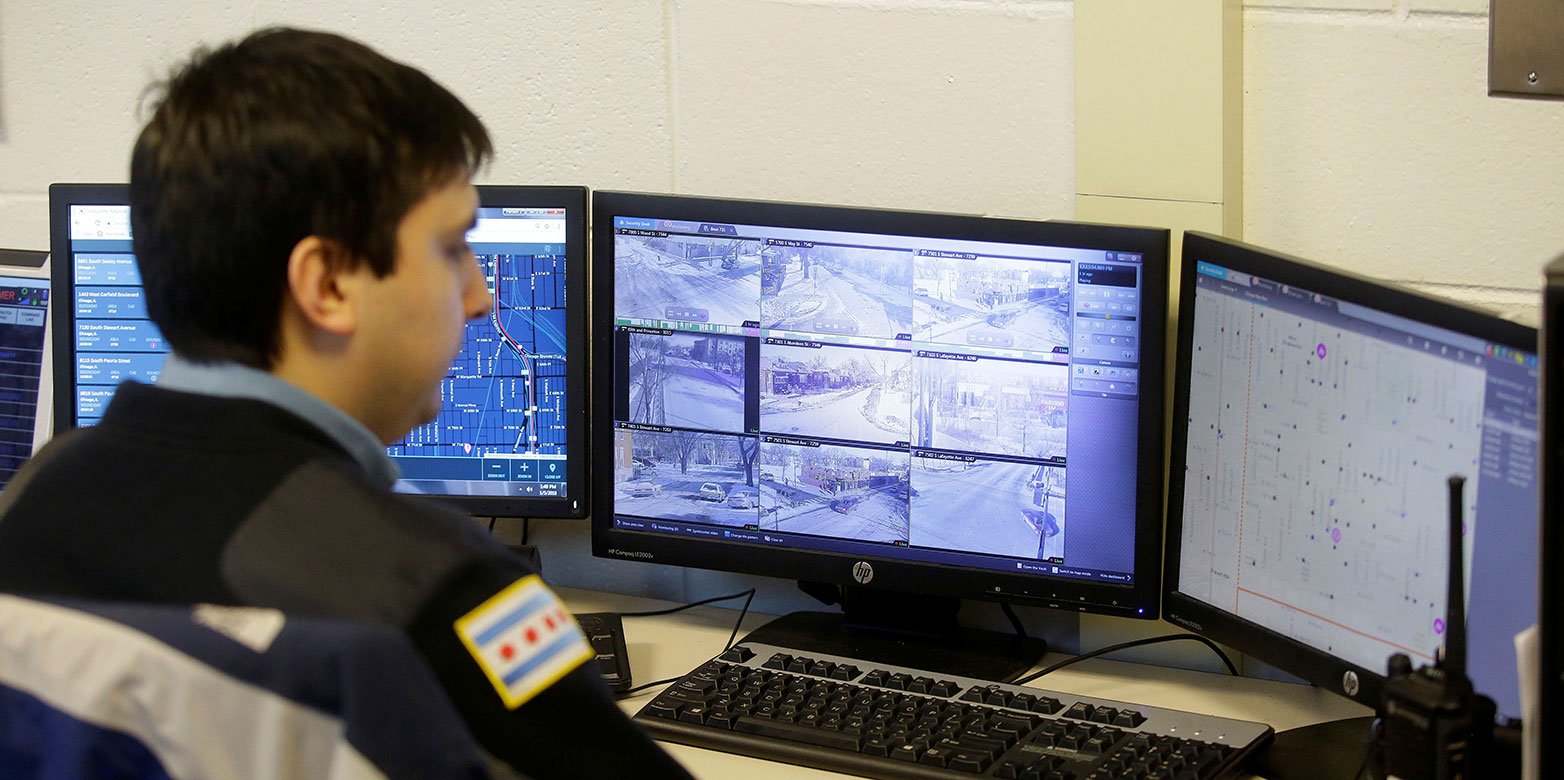Predictive Policing: Proceed, but with Care
According to this CSS Policy Perspective by Matthias Leese, data-driven analytics can increase the effectiveness and efficiency of police work. Police departments should however proceed with care, as tools such as predictive policing raise a number of concerns regarding human rights and civil liberties.

Chicago Police Officer Grand monitors the Police Observation Devices on computer screens in Chicago. Joshua Lott / Reuters
Key Points
- Data-driven analytics can help to improve police work and crime prevention.
- Tools such as predictive policing can however potentially undermine civil liberties and impair the relationship between the police and the population.
- In order to ensure responsible use, policy-makers and police chiefs should critically reflect questions of data, automation, decisionmaking, communication, and operative measures in algorithmically supported police work.
Further Reading
Egbert S. / Leese M., external page Criminal Futures: Predictive Policing and Everyday Police Work (London/New York: Routledge, 2021).
Kaufmann M. / Egbert S. / Leese M., external page «Predictive Policing and the Politics of Patterns», in: British Journal of Criminology 59:3 (2019), S. 674 – 692.